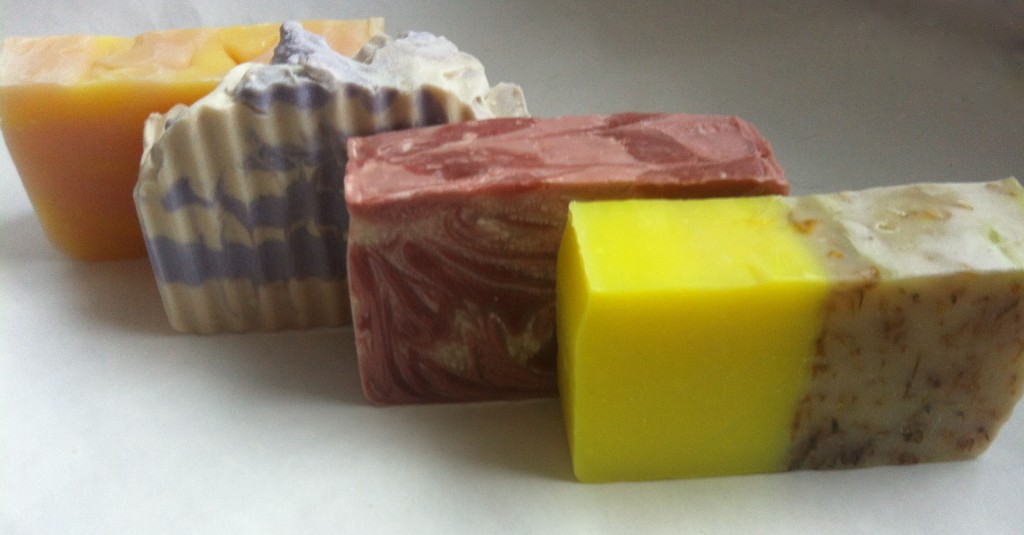
Congratulations to Malinda! The random number generator picked your entry for the Jane Austen Soaps giveaway.
If you didn’t win, you can still purchase the soaps from my Etsy store. Watch out for future contests and store coupons!


Congratulations to Malinda! The random number generator picked your entry for the Jane Austen Soaps giveaway.
If you didn’t win, you can still purchase the soaps from my Etsy store. Watch out for future contests and store coupons!

I’m in the midst of re-reading Pride and Prejudice, and I had forgotten how quickly the story moves along. I just reached the part that contains perhaps my favorite lines:
“Come here, child,” cried her father as she appeared. “I have sent for you on an affair of importance. I understand that Mr. Collins has made you an offer of marriage. Is it true?” Elizabeth replied that it was. “Very well—and this offer of marriage you have refused?”
“I have, Sir.”
“Very well. We now come to the point. Your mother insists upon your accepting it. Is it not so, Mrs. Bennet?”
“Yes, or I will never see her again.”
“An unhappy alternative is before you, Elizabeth. From this day you must be a stranger to one of your parents.—Your mother will never see you again if you do not marry Mr. Collins, and I will never see you again if you do.”
One of the best dad moments in literature, even if later we learn perhaps Mr. Bennet should be a little more watchful of his younger daughters.
In honor of my re-read, and just because they’re all ready to go (at last), I am giving away one bar of each soap in my Jane Austen soap series.

I have created five soaps based on heroines from three Jane Austen novels: Pride and Prejudice, Sense and Sensibility, and Emma.
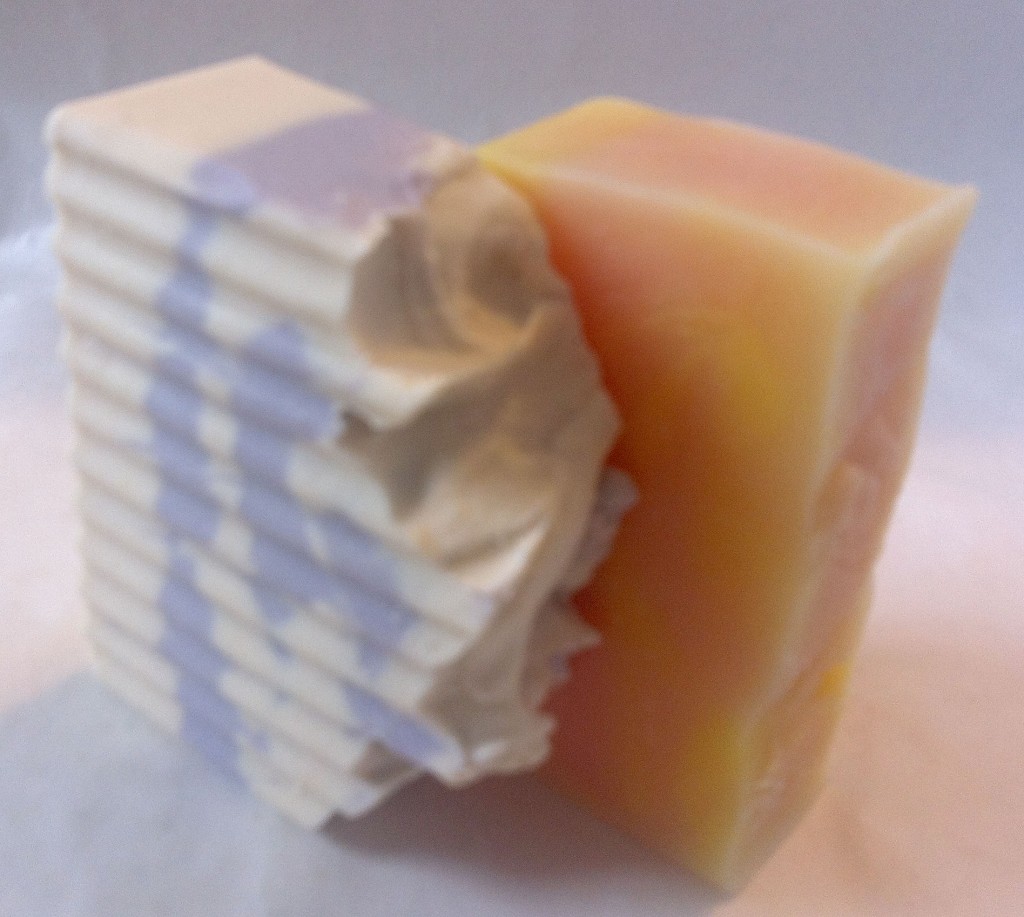
The Bennet sisters, featured in Pride and Prejudice are also available as a set in my Etsy store.
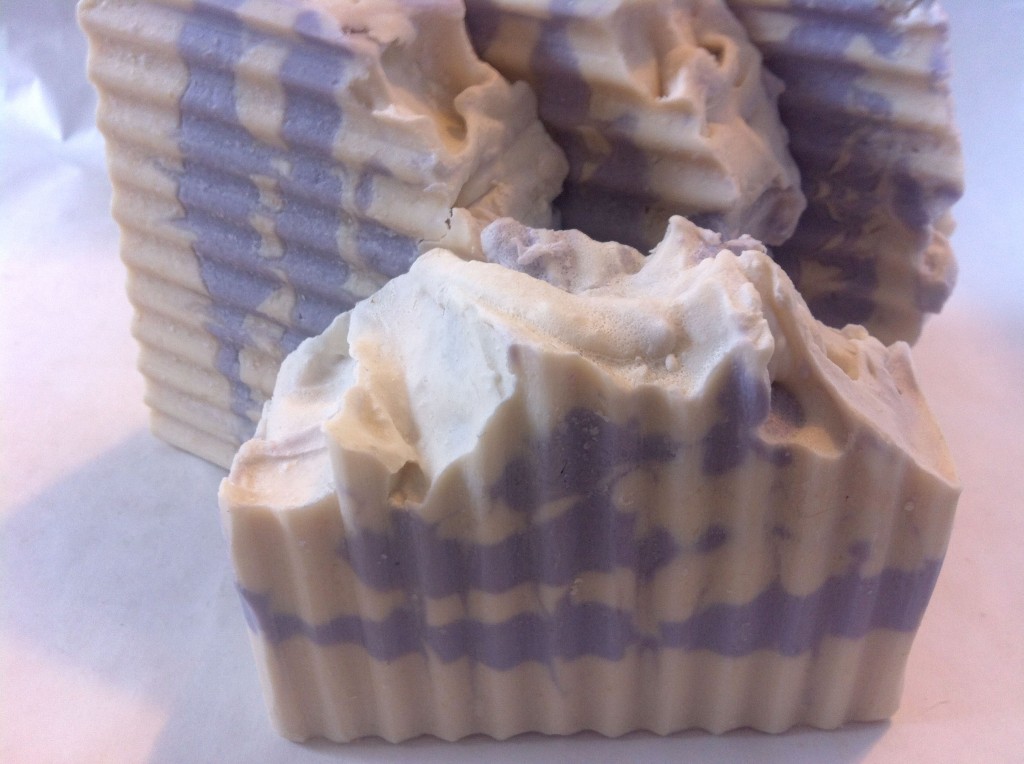
Mrs. Darcy is inspired by that delightful creature herself, Elizabeth Bennet. Created with her personality in mind, it contains goat milk (to represent her stubbornness) and rich vegetable oils, including olive oil, coconut oil, palm, oil, sweet almond oil, castor oil, and cocoa butter and is scented with fragrantly floral plumeria.
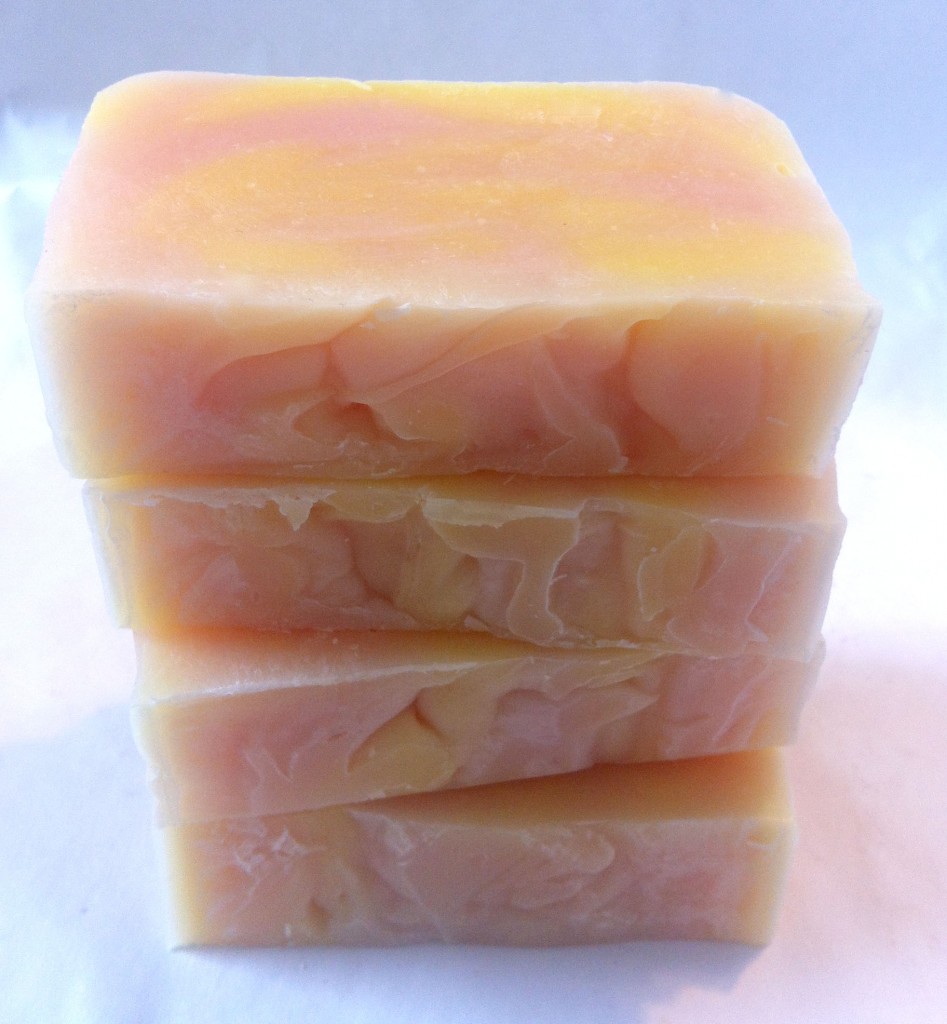
Sweet Jane is as nice as her namesake, Jane Bennet. Made with coconut milk, olive oil, coconut oil, palm oil, cocoa butter, and castor oil, this soap has a clean, wholesome scent of lemon verbena.
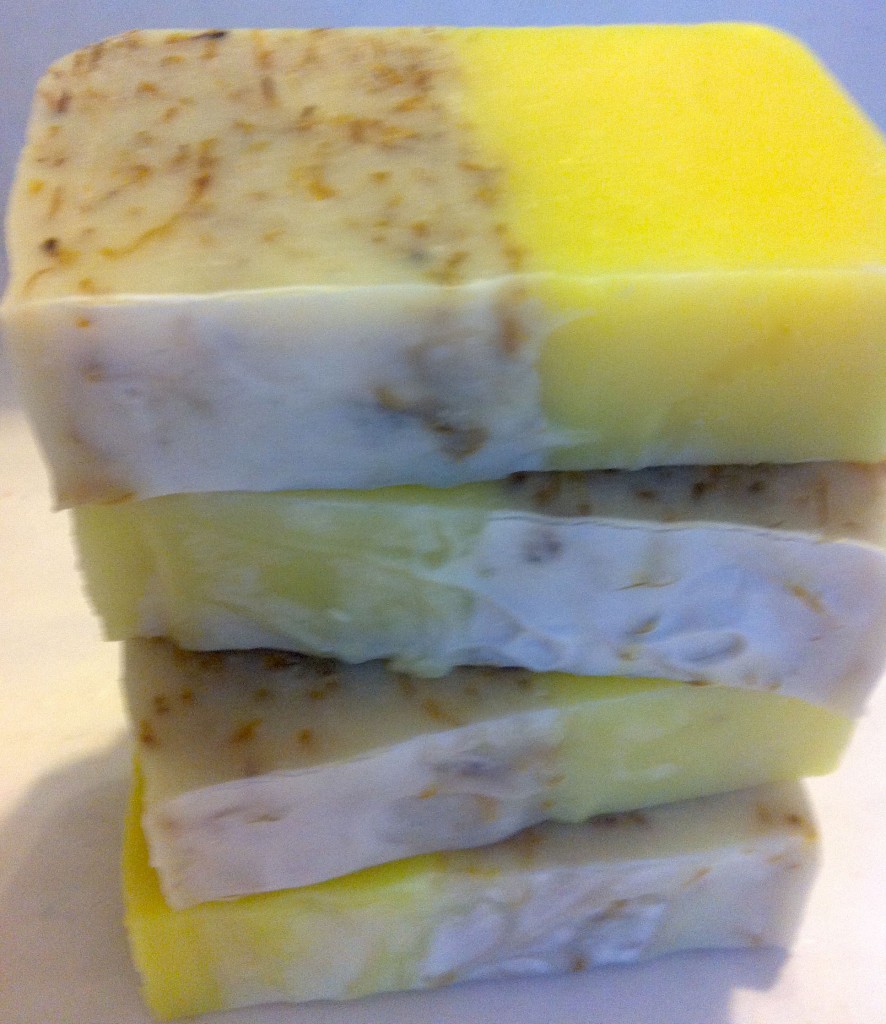
Just like Emma herself, her namesake soap unites some of the best blessings of existence: beautiful calendula petals and luxurious silk with rich, moisturizing shea butter, olive oil, and sunflower seed oil and scented with citrusy tart yuzu and sweet orange.
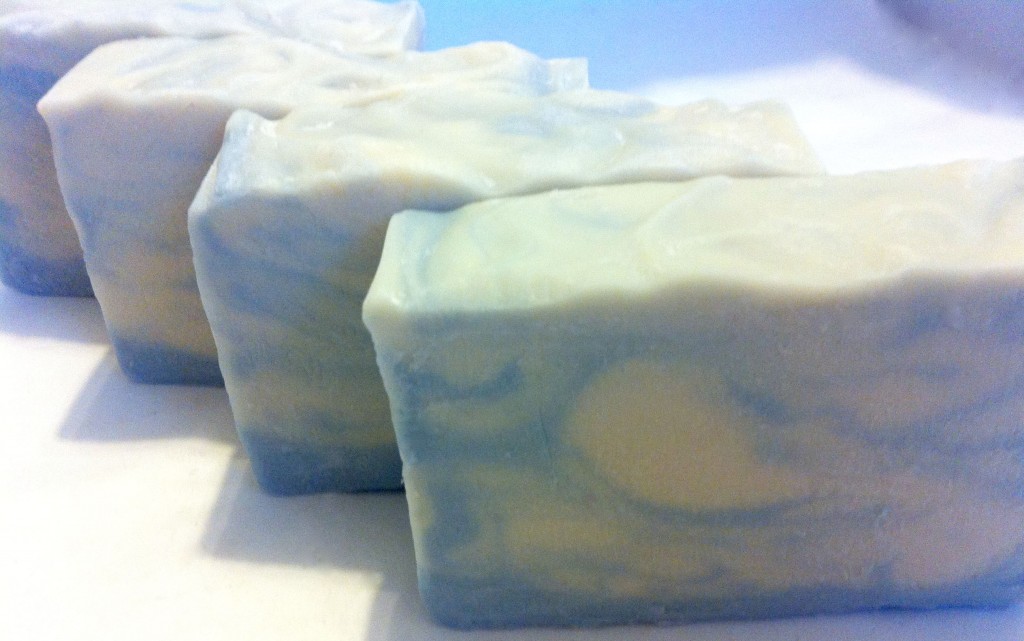
Elinor’s soap has a fresh, mild, clean scent that evokes herbs and mint and is made with olive oil, sunflower oil, shea butter, and other rich, moisturizing oils.
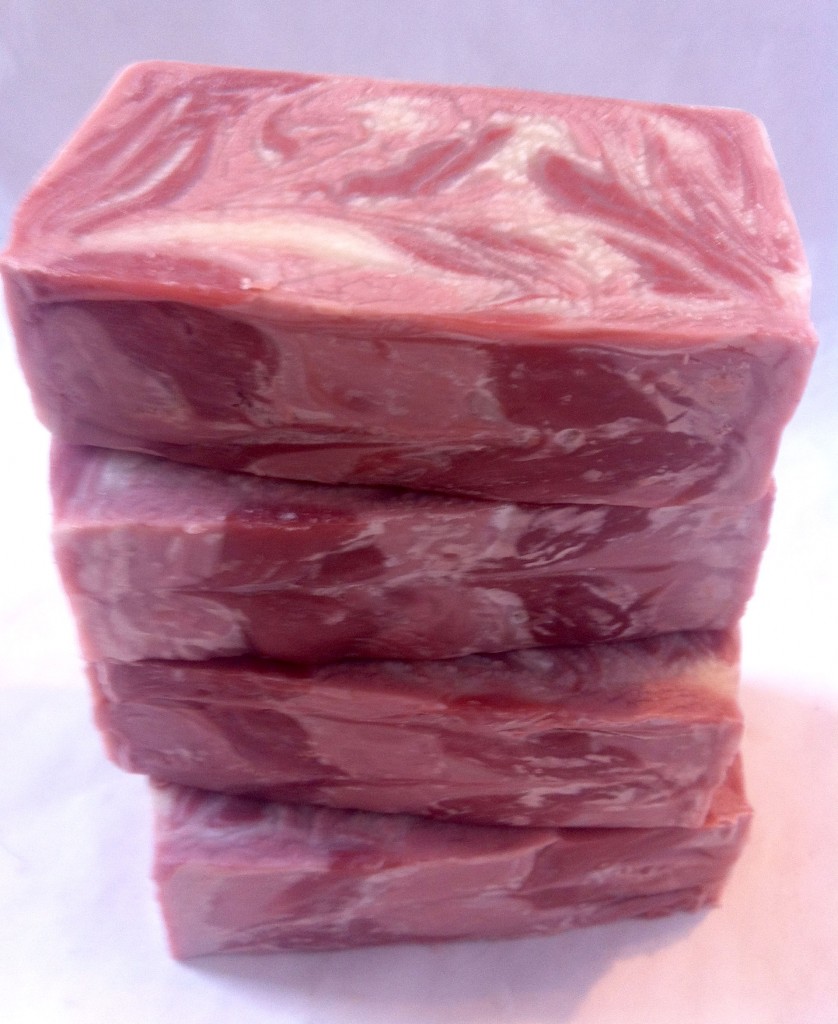
This wild swirl of black raspberry vanilla evokes Marianne Dashwood’s passionate nature. Made with olive oil, cocoa butter, silk and other rich, moisturizing oils, this soap is a treat for your skin.
What do you have to do to win this prize package? Simply leave a comment with your favorite quote from Pride and Prejudice and explain why it’s your favorite. A winner will be chosen at random on Friday, February 22, 2013. You can earn an extra entry if you like New England Handmade Artisan Soaps on Facebook and share the giveaway. Simply locate the giveaway on my Facebook page and share it on your Facebook timeline.
Good luck! And remember that if you don’t win, you can still order this fantastic collection from my Etsy store.

I know that folks read this blog for book reviews and other bookish things, so rather than potentially bore folks who aren’t interested in soap making, I have created a new blog to discuss my adventures in making soap. I would love for you to join me over there if it sounds like this is something you are interested in, but if you’re not, rest assured the soaping will be confined to that blog from now on. I have to admit that it is a really fun hobby, and I can’t remember taking up any other craft venture that I’ve enjoyed so much.
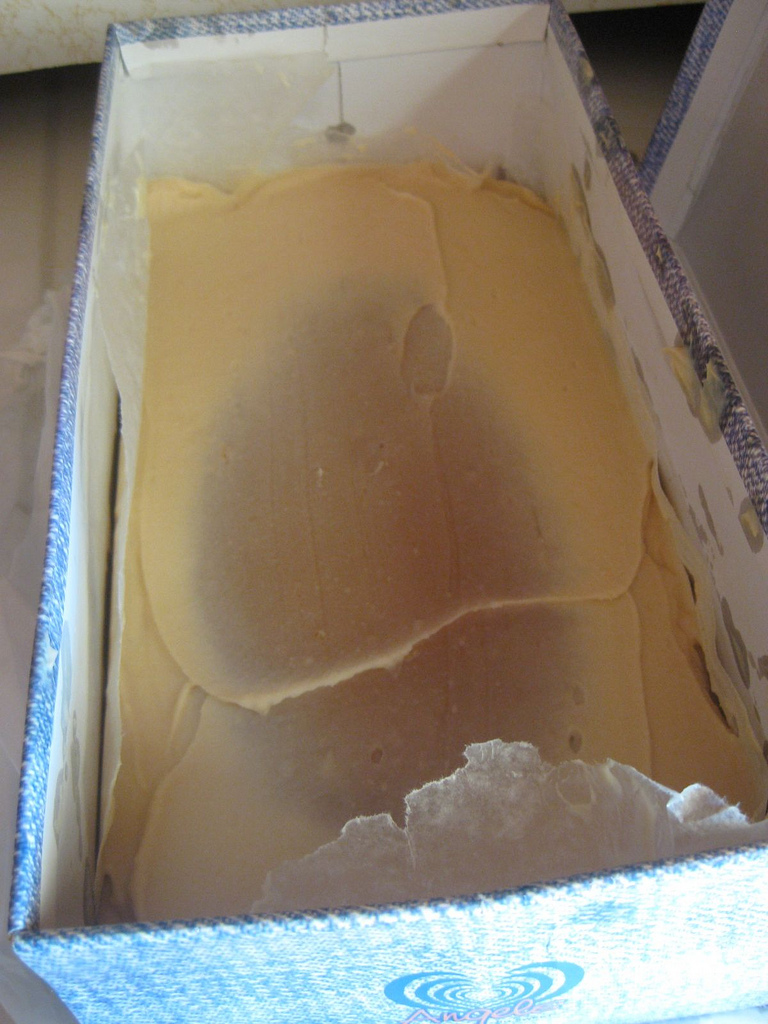
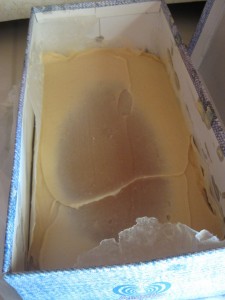 Some time back, I reviewed Basic Soap Making by Elizabeth Letcavage and Patsy Buck. I have been collecting soap recipes. Any time you start a new hobby, particularly one that requires any sort of specialized equipment, there is both expense and a learning curve involved, and I wanted to make sure I was really ready before I started. I made my first batch of soap today. It is currently saponifying (hardening into soap) in the kitchen. In fact, a little while ago, it looked like the soap in the picture to the left, though now, pretty much all of it is that darker color you see in the middle here. That is called the gel stage, and if you poke it, it feels like, well, a gel. After 24 hours, it should be hard enough to cut into bars, but it will have to cure for about a month before I can use it. If I were a little more handy or experienced, I would have taken pictures of the process as I went. I made the first basic recipe in the book, and I think I really expected it to flop because I was so excited when it turned out exactly as Letcavage and Buck said it would. I am really excited it turned out so well so far. I’ll know tomorrow if it worked. If you’re looking for a clear book with basic, easy-to-follow instructions for making soap, this one is definitely worth it. It’s nice when you can find a craft book with clear instructions that actually work. The pictures make everything easy to understand.
Some time back, I reviewed Basic Soap Making by Elizabeth Letcavage and Patsy Buck. I have been collecting soap recipes. Any time you start a new hobby, particularly one that requires any sort of specialized equipment, there is both expense and a learning curve involved, and I wanted to make sure I was really ready before I started. I made my first batch of soap today. It is currently saponifying (hardening into soap) in the kitchen. In fact, a little while ago, it looked like the soap in the picture to the left, though now, pretty much all of it is that darker color you see in the middle here. That is called the gel stage, and if you poke it, it feels like, well, a gel. After 24 hours, it should be hard enough to cut into bars, but it will have to cure for about a month before I can use it. If I were a little more handy or experienced, I would have taken pictures of the process as I went. I made the first basic recipe in the book, and I think I really expected it to flop because I was so excited when it turned out exactly as Letcavage and Buck said it would. I am really excited it turned out so well so far. I’ll know tomorrow if it worked. If you’re looking for a clear book with basic, easy-to-follow instructions for making soap, this one is definitely worth it. It’s nice when you can find a craft book with clear instructions that actually work. The pictures make everything easy to understand.
I have also acquired a new iPad through work, and I have to put in a plug for the Shakespeare’s Sonnets app. It’s utterly fantastic. While $13.99 is a little high for an app, if you consider all it includes—videos of each sonnet recited or interpreted by actors or scholars, video commentary on the sonnets, written annotations, essay commentaries, and facsimiles of the original publication, as well as the ability to add your own notes and mark your favorites—it’s worth the money. In fact, if you think about it, you would probably pay close to $13.99 for a good annotated collection of the sonnets, and it wouldn’t have all the other extras.
I have also discovered I enjoy watching Netflix on the iPad much more than on my computer or even my TV. It probably has to do with the computer being rather difficult for me to hold when viewing longer videos, but I’m not sure. It is similar to the issue I have with reading longer texts: I can’t read books on my computer, but articles are fine. Watching Netflix on TV through the Wii is fine, but unless I really wanted to curl up in front of the TV, I just didn’t do it much for whatever reason. Watching Netflix on the iPad, however, has turned out to be perfect for me. I decided I would finally start watching Doctor Who, which I had been meaning to check out for years—years! Finally, I started the first season of the new series, beginning with Christopher Eccleston, and I love it! I have been watching the first season most of last night and this afternoon. Something weird I notice, and I can’t stop myself: Rose Tyler’s mascara is always clumpy. It made me wonder if they had her do her own makeup. On the other hand, it lends an air of realism to the show. She seems more like a real person than an actress because her makeup isn’t perfect. I know. Weird. Surely, some of my fellow book geeks watch this show, right?

We (finally) received our belongings after two weeks of waiting. A word to the wise: Never use Summit Van Lines. The estimate was well below the final cost, and while I understand an estimate is an estimate, I think it should be close to the cost. They were hard to communicate with. Sometimes it took multiple tries to reach them. Our goods were only delivered after I complained. Finally, our boxes were all crushed, and I attribute the fact that nothing (so far—still unpacking) was broken to the fact that I packed the breakables myself. Had they done it, I’m sure it would have been broken. They also tried to charge us for having stairs, but their boilerplate specifically says there is no charge for stairs, so we put our feet down.
One of our movers asked us why we had so many books.
As if that’s weird or something.
We have more book boxes than anything else. Steve took the picture above of our book boxes. We haven’t unpacked them yet because we have a plan for organizing them, and I imagine they’ll be the last things we unpack. So far we have the kitchen and bathroom done, and we are making serious headway on the master bedroom.
I went to San Diego for an educational technology conference with my new colleagues at Worcester Academy, and I won a [amazon asin=B0051VVOB2&text=Kindle Fire]! I am trying to figure out how I will best use it. I like the idea of putting mainly books with color images on it, or perhaps using it for periodicals. I want to share it with family, but I’m also concerned that will be hard because one or the other of us might be using it for a book and not want to hand it over. Anyone try to share a Kindle? Did it work? If you have a Kindle Fire, how do you use it? What do you like about it?


If you have been reading this blog for a while, you might recall that we had a move planned for mid-June from Georgia to Massachusetts. We are finished with the move, if not with the unpacking. In fact, our moving truck hasn’t arrived yet, but we are settling into our new home in Worcester. Today we plan to visit my new school so my husband and kids can see it. It still hasn’t really sunk in that I moved 1,000 miles away from a place where I have lived since 1989 (with the exception of two short stints in Virginia and North Carolina that lasted three years put together). I know there are things I will miss about Georgia, but summer is not one of them.
We have begun exploring the area. Worcester is kind of a funky little town. I suppose some of that may be down to the influence of the colleges in town. I put together a Pinterest board of places and things to check out in Worcester. I’m sure I’ll feel a little discombobulated by all of it until we settle in. I have moved before, and farther away, too. Just not for a very long time, and not when I was the person responsible for all of it.

Still, I’m excited and am looking forward to the change.
I’m hoping once things settle down that I can pick up my reading schedule again.
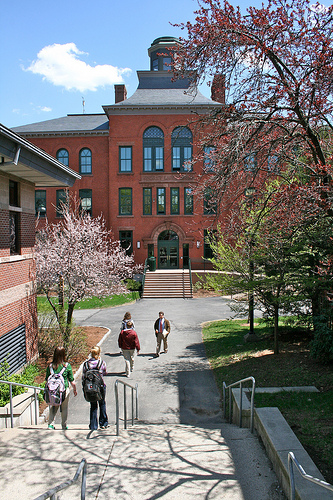

It has been some time since I updated this blog, and as I have explained before, a job search was taking up quite a bit of my time. Not only was I not blogging much, but frankly, I wasn’t reading much, either. I’m pleased to announce that particular search is over. I accepted an offer and signed a contract for the position of Technology Integration Specialist at Worcester Academy in Worcester, MA. We currently live in the Atlanta-area, so needless to say, this is a substantial move. I haven’t moved this far away from a current residence in over 20 years, and I haven’t even moved to a different state since 1996—and that was moving from North Carolina back to Georgia. We have no family in Massachusetts, nor do we have that many friends, but even though it’s a bit of a scary prospect, we are excited about the adventure, too.
Now that a decision has been made and I can refocus my free time, I am hoping that you’ll see more frequent updates here and that I will also have more time to read. I’ve missed that.
If you are familiar with the area around Worcester, please feel free to offer information or advice. I’m all ears. The only time I have been there was when I visited the school in March. I have only been to Massachusetts twice before. Once on a school trip with my students the first year I taught at Weber, and once on a trip to Salem with the family. Both times I thoroughly enjoyed myself. My daughter Maggie is a real history buff, so I think she will like the historical aspect of living in Massachusetts. A part of me has always been interested in the state, but I never dreamed I’d have an opportunity to live there.
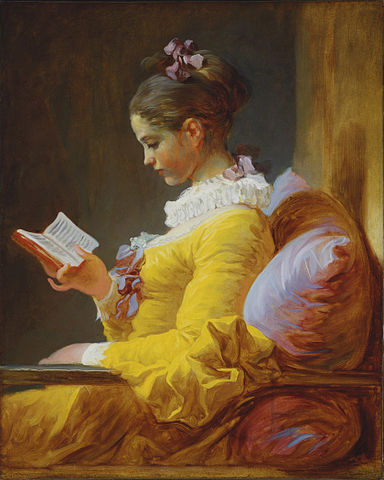
Happy New Year! Let’s all hope we survive the end of the Mayan calendar this year, mainly so people on the “History” Channel (lately, I’m thinking some sort of federal authority ought to require them to use the quotation marks) will quit talking about it.
I met my reading goal of 50 books in 2011, which was my best ever year. While I do want to read more books this year, I am not sure I could read much more than 50, so I’m setting this year’s goal at 52, only a moderate increase over last year’s goal. It also rounds out to an even book a week.
I am participating in the following reading challenges this year:
All of these challenges allow for books to be counted for more than one challenge, which is great. Otherwise I’d need to pare back.
Last year I made it a goal to improve the tagging on my blog posts, which is still an area I need to work on. I am posting more regularly, and the review posts include the authors’ names now, which I think has contributed to making them more useful. I need to work on titling meme posts so that they are more descriptive of the content rather than just titling them after the meme and using the date. I need to get back in the habit of doing Teaser Tuesdays. I realized in looking back at my posts that I actually liked those posts quite a lot more than I thought I did. Also, I think it’s a good way to introduce readers to favorite quotes in books. Another goal I have for my blogging is to post more often about book and literature-related issues, which I started out doing, but gradually cut back on. In reflecting on my favorite posts of the year 2011, I found those types of posts were more frequently my own favorites, and it stands to reason that if I liked them better, perhaps readers do too.
I have some other reading goals for the year.
Outside of reading, blogging, and reading about blogging, I have some more goals for the year.
What about you? Do you have any reading goals or other goals for 2012?

I didn’t post much this week. I didn’t read much, even though I am enjoying the book I am reading—[amazon_link id=”0312558171″ target=”_blank” ]The Ballad of Tom Dooley[/amazon_link] by Sharon McCrumb. The prompts from some of the weekly memes I usually participate in didn’t appeal me much last week, and I didn’t write about today’s Musing Monday because I recently wrote on the topic already.
Another reason for the silence is that I commute to work on the bus, and Wednesday afternoon, a pedestrian was killed on my bus route. I didn’t see it happen, but I did see the police clean up afterward. It was horrible. I had some trouble concentrating on reading for a couple of days afterward, and I still keep thinking about his poor family. The driver who hit the pedestrian was not at fault, but we all make stupid mistakes, and it is a pity when we have to pay with our lives. He was just eighteen years old.
I spent the weekend making playlists in Spotify. If you have Spotify (and it’s now open for signups with no invitations necessary), then feel free to subscribe to them. They are all classical music. I decided to disconnect my Spotify account from Facebook because I don’t really want everyone knowing everything I’m listening to. Besides, isn’t it annoying to receive updates for each song someone listens to in your Facebook feed? Anyway, my Spotify profile is here, so feel free to connect to me (if you can figure out how to do that).
I am so glad fall is coming at last. The leaves are beginning to turn here in Georgia, so I imagine they are really pretty up north right now.
Update: I put the Fall Classical list on Ping, too. You have to buy the music on iTunes, but if that’s your preference over Spotify, then you can check it out there, too.
Madame Guillotine posted about her historical crushes recently, and what a fun idea!
Mine are mostly writers.
First, Byron, a perfect rake to be sure, but so handsome, and probably charming (or else he wouldn’t have been such a successful rake).

To be honest, having a historical crush on Byron is the modern equivalent of crushing on bad boys, but much safer. No risk of life or limb. I have read several fictional portraits of Byron, and he always emerges as charismatic, intelligent, and, above all, interesting. Read my reviews of Passion by Jude Morgan and Lord Byron’s Novel: The Evening Land by John Crowley, or better yet, read the books yourself, and you’ll see what I mean.
I have had a mad crush on Shelley since 1989. I am not sure why, but his poetry just speaks to me.
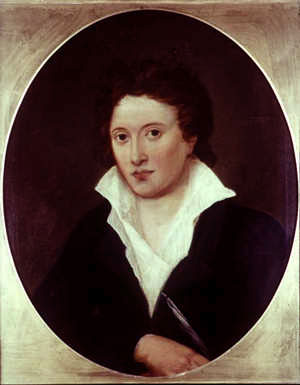
Jude Morgan managed to do what I thought would be impossible in his novel Passion: A Novel of the Romantic Poets: he managed to make Shelley walk on the ground. I always thought he should be among the angels—surely too good for the solid earth.
You can read about the dream I had about having tea with Byron, Shelley, and Keats. I’ve posted about my crush on Shelley before.
Ever since I read The Great Gatsby, I have had a crush on F. Scott Fitzgerald. He writes some of the most beautiful prose in American English.
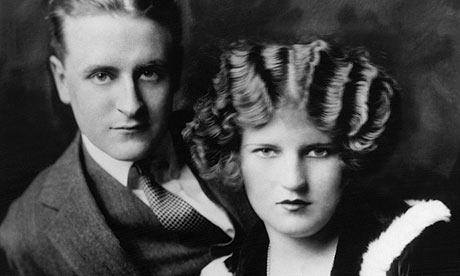
He drank way too much, and he thought way too highly of rich people (which is something I glean from reading his novels rather than from a mis-attributed quote Hemingway pinned on him). Hemingway should be more grateful. The Sun Also Rises was a better book for Fitzgerald’s suggestion of deleting the first chapter and beginning with the second. And I love that book, by the way. There are some passages in The Great Gatsby that you can’t beat for poetry. So we beat on, boats against the current, borne back ceaselessly into the past.
Robert the Bruce got a raw deal in Braveheart. I know the film was supposed to be about why William Wallace was such a hero, but honestly, did they have to besmirch the character of Scotland’s greatest hero in order to make Wallace look good? For starters, Robert the Bruce did not fight with the English at Falkirk or betray Wallace. He also didn’t decide on the spur of the moment at Bannockburn that he was not going to surrender after all—he was never going to surrender. Any argument the two had was the result of the fact that Wallace probably supported the Balliol claim to the Scottish throne.
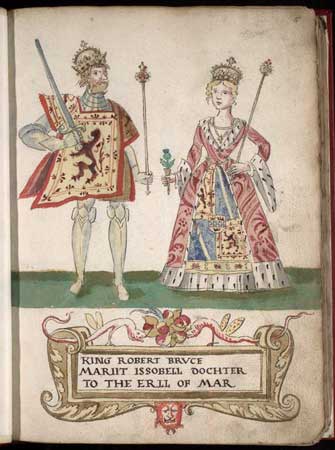
One of my favorite legends about Robert the Bruce is the one about the spider. He was a wanted man, an outlaw on the run. Hiding in a cave, he observed a spider trying to make a web. It failed time and again as it tried to attach the silken threads from one section of the cave’s roof to another. Finally, it succeeded, and Robert the Bruce knew that he, too, would eventually succeed in his quest to take the throne he believed was rightfully his. And he did. It’s most likely a complete fabrication, but an inspiring one. Ronald McNair Scott has a great biography of Robert the Bruce: Robert the Bruce: King of Scots.
Queen Elizabeth, while famously known as the Virgin Queen (yeah, right), had a thing for Robert Devereux, the 2nd Earl of Essex (at least according to many historians). He was so dashing that men clamored to imitate his fashionable beard.
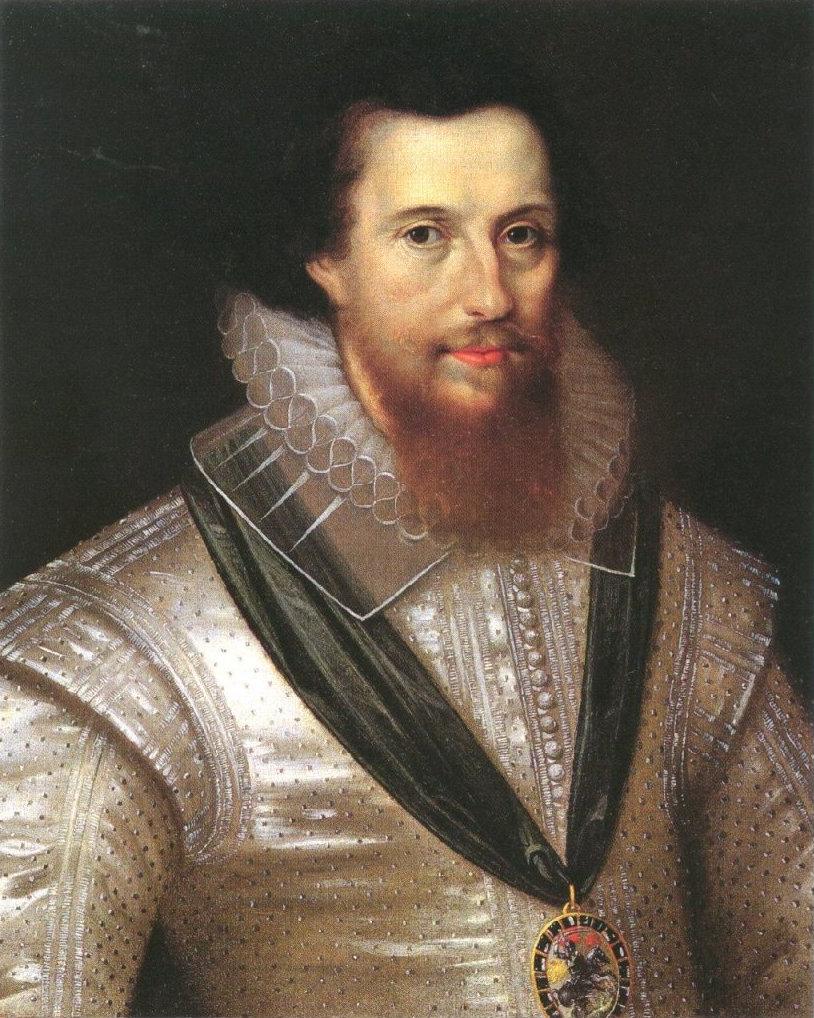
He was a military hero, but more than that, he had some serious cojones. He came back from Ireland after the Queen expressly forbid it and charged into her bedchamber before she had her wig on. Of course, he eventually paid for this flagrant disregard for propriety with his life (or, to be more accurate, it was the incident that instigated his inexorable fall from favor, rebellion, and eventual execution). Elizabeth was a formidable woman. Anyone who could pull a sword on her after she smacked him one deserves some grudging respect.
There is a legend that Alfred the Great was in disguise and took shelter with a peasant woman. She asked him to mind the cakes on the fire and not let them burn, but he was preoccupied with the troubles of his country. The cakes burned, and the woman scolded the King. Like the story about Robert the Bruce’s spider, it may or may not be true, but it makes a great tale.

Alfred is the only English king to have been given the epithet “the Great.” I am obsessed with the British monarchy. There are a load of interesting characters in that crowd. But trust me that Alfred is probably the only one who deserves the epithet “the Great.” He singlehandedly saved the English language. Don’t believe me? Listen to this. If Alfred had lost that battle, who knows where we would all be. Not only did he prevent Vikings from taking all of England, he also valued literacy and ordered translation of essential Latin texts into English for the first time. He also established some of the earliest schools in England.
In Rebecca Fraser’s The Story of Britain: From the Romans to the Present: A Narrative History, a story about Major General James Wolfe taking Quebec is recounted:
At dead of night, Wolfe led the the 5,000 British and American soldiers with blackened faces silently downriver in rowing boats till they were opposite the Heights of Abraham. As he was borne along the treacherous river whose rocks and shoals made it a hazard to all but Quebeçois, Wolfe softly read out his favourite poem, Elegy Written in a Country Churchyard by Thomas Gray, published only a few years before, a copy of which his fiancée had just sent out to him from England. His thin face, touched by moonlight, seemed to wear a beatific expression as he murmured the sonorous words whose Romantic, melancholic spirit echoed his own. As the mysterious cliffs loomed up ahead and the men rested on their muffled oars, Wolfe closed the book. ‘Well, gentlemen,’ he said, ‘I had rather have written that poem than take Quebec.’ But then he leaped overboard, into the swirling St Lawrence, and ran ahead of them until his was only one of the many tiny figures on the vast cliff face pulling themselves up by ropes.
When dawn rose over Quebec Montcalm [the French commander] awoke to see on the plain behind him, above the cliffs said to be unclimbable, row after row of British redcoats. They were in battle array and far outnumbered the French, whose sentries’ mangled bodies bestrewed the cliffs or floated in the river below. It was a breathtaking, almost impossible, feat, to have put thousands of men on top of a cliff overnight, but Wolfe had done it.
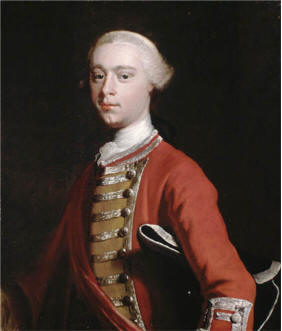
Besides his dashing bravery in the face of illness—he was dying of consumption when he led the raid—he has an appreciation for poetry over military prowess. Why he isn’t more well known outside of Canada, I’m not sure.
And finally, after having read Jude Morgan’s Passion and seeing the movie Bright Star, I admit to developing a girl crush on Fanny Brawne.
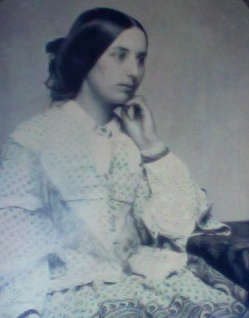
Fanny Brawne was the fiancée of Romantic poet John Keats and is believed by some scholars to be the inspiration for Keats’s sonnet “Bright Star”:
Bright star, would I were steadfast as thou art—
Not in lone splendour hung aloft the night
And watching, with eternal lids apart,
Like nature’s patient, sleepless Eremite,
The moving waters at their priestlike task
Of pure ablution round earth’s human shores,
Or gazing on the new soft-fallen mask
Of snow upon the mountains and the moors—
No—yet still steadfast, still unchangeable,
Pillow’d upon my fair love’s ripening breast,
To feel for ever its soft fall and swell,
Awake for ever in a sweet unrest,
Still, still to hear her tender-taken breath,
And so live ever—or else swoon to death.
I wrote much more about her in the post I linked. She was an interesting woman in her own right.
Perhaps next week will be a good time to share my crushes on fictional characters. I must have already done it at some point, but I can’t remember.
So who are your historical crushes. And don’t say Henry VIII. He didn’t look like Jonathan Rhys Meyers. He had a disgusting sore from a jousting wound, he was despotic and arrogant, and he was a serial wife murderer. I will concede he was interesting.
Bad Behavior has blocked 24963 access attempts in the last 7 days.